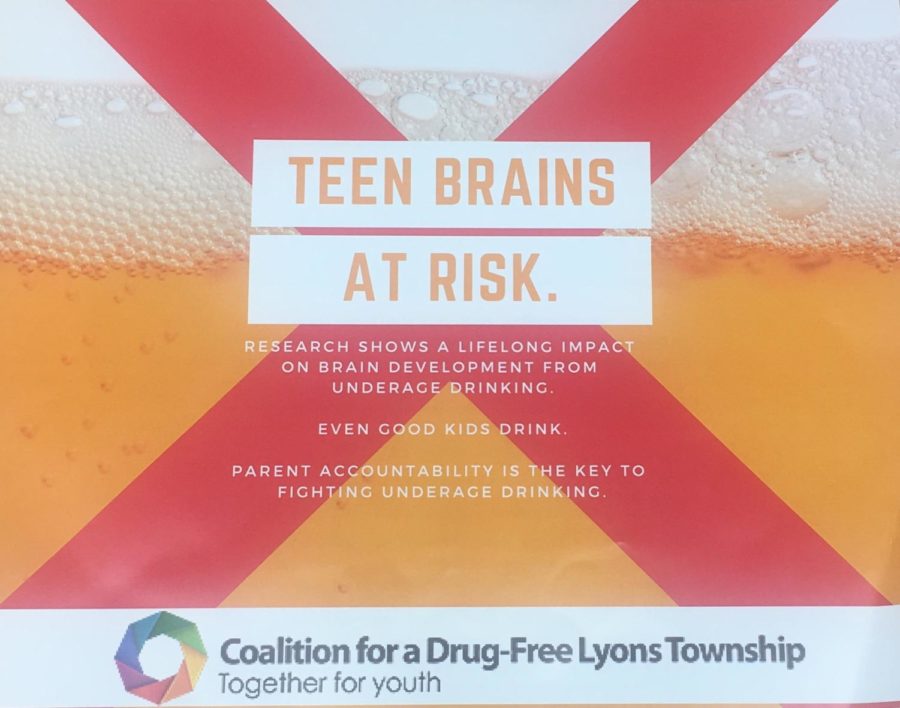Alcohol presentation raises awareness
May 1, 2019
A presentation about alcohol called “Alcohol’s Effect on the Adolescent Brain and Body” was given by Sahib S. Gill, M.D., a certified family physician in Westmont, Illinois, who is also affiliated with AMITA Health Resurrection Medical Center in Chicago. The presentation, which took place April 23 in the PAC, was about 50 minutes long, including a Q&A at the end. There was a sign-in sheet upon entering and a flyer shown here. About 20 guests showed up and many parents came to the presentation with their young children.
Gill began the presentation with basic statistics about underage alcohol use.
“In 2014, half of the people between the ages of 12 and 20 were binge drinkers, and 13.7% were heavy drinkers,” Gill said.
Some of the main points of the presentation were about the effects of alcohol on the developing brain and types of treatments.
“Those who are depressed, withdrawn and anxious are the people that are at the greatest risk for alcohol problems,” Gill said.
Depression is the most common mental health disorder in the United States among teens and adults, according to TeenHelp.
“The point to take home is that alcohol does more than hurt your liver and body. Your brain and your liver affect your whole body in some way,” Gill said.
Gill then talked about ways of prevention and types of treatments.
“Patients will always be shocked when I tell them there’s medicine to help you stop drinking,” Gill said.
“There’s three FDA medications to help someone stop drinking. The first medicine, which can be started when someone is over 16 years old, is called Naltrexone and basically what this medicine does is it blocks the receptors in the brain where the alcohol would eventually go and find downstream. By blocking these receptors, it reduces the craving and the urge to drink and helps hopefully take away that euphoria. So when you’re not getting anything out of it, hopefully you’re not drinking as much. There’s other medicines too that we use in adults but that’s one of the more common medicines.”





















![Movie poster for '[Rec]" (2007).](https://www.lionnewspaper.com/wp-content/uploads/2023/04/rec-640x900.jpg)



